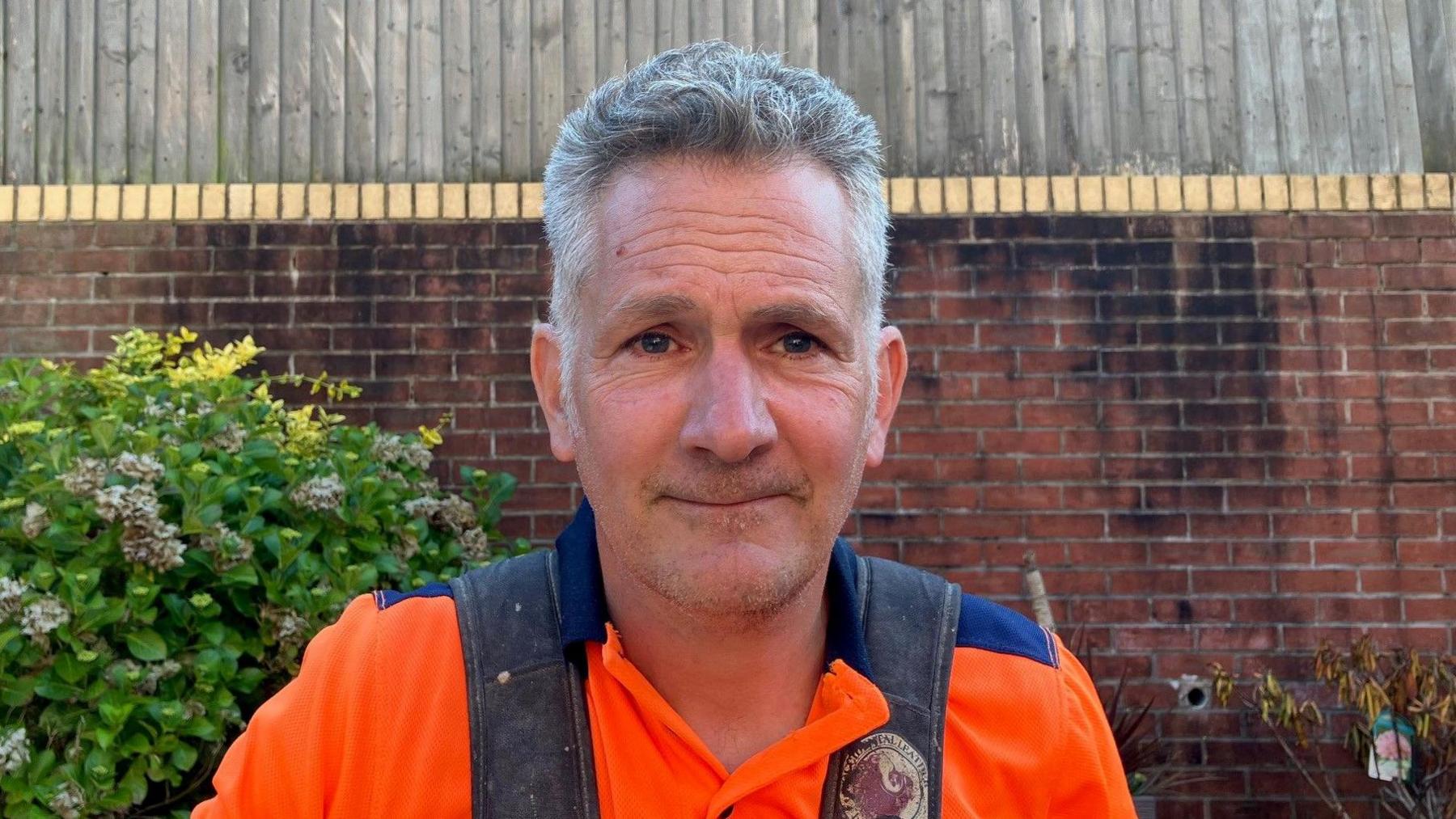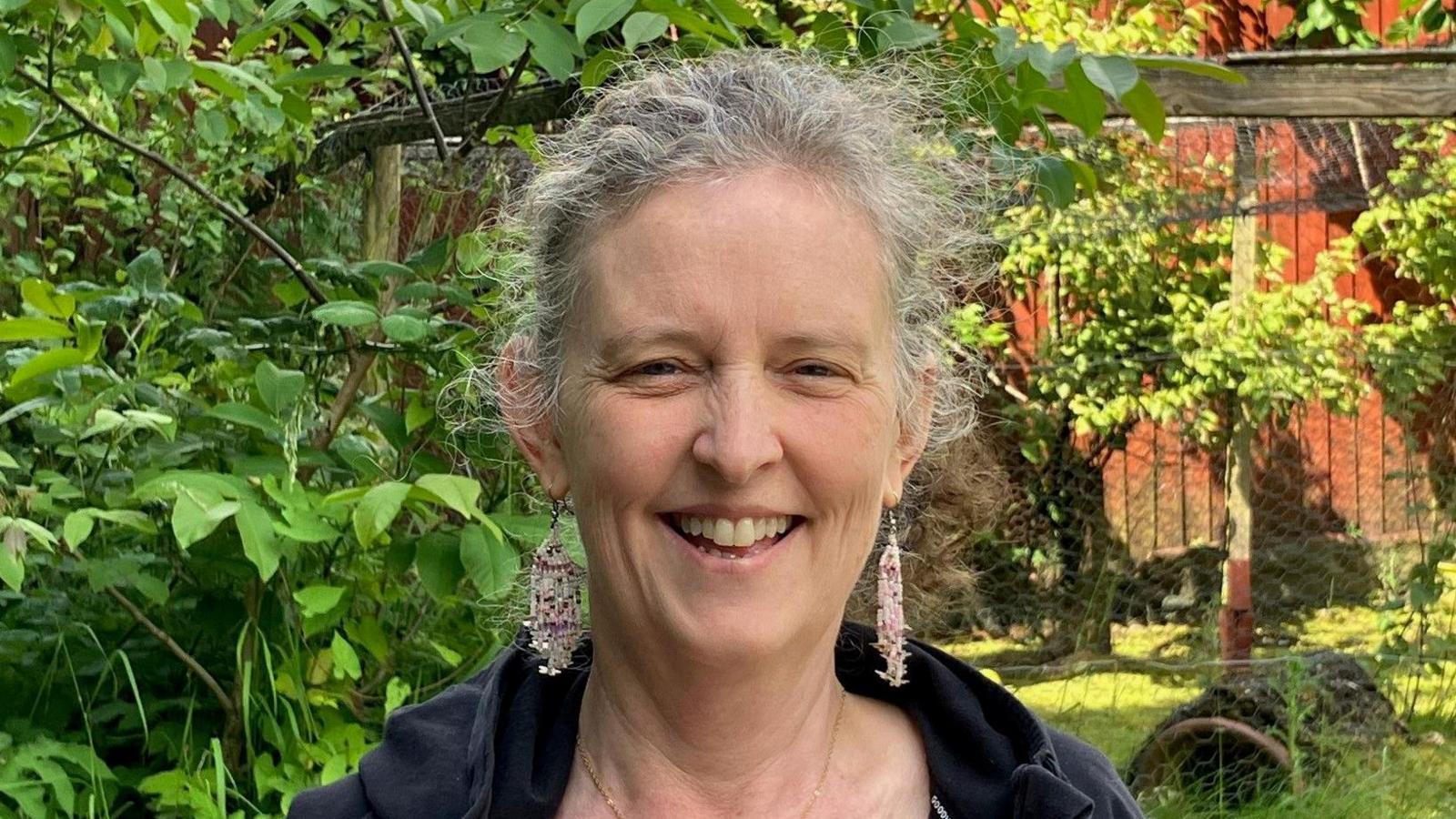Inflation and Covid set our savings back 10 years

Self-employed carpenter Justin Williams says he was hit by the pandemic and inflation
- Published
The economic shocks of the past four years have blown a massive hole in the family finances of father-of-three Justin Williams.
The self-employed carpenter from Ystrad Mynach near Caerphilly has seen his savings eroded and his mortgage payments increase by 40%.
Mr Williams, 49, said he and his wife Hayley, who works as a legal assistant, have been pushed backwards by "at least" a decade.
It comes as political parties set out their stalls for the general election by explaining how they would help make people's money go further.
Inflation falls to lowest level in almost three years
- Published19 June 2024
Businesses and customers still battling high prices
- Published7 June 2024
But Mr and Mrs Williams are already thinking about making big changes.
"We are getting to a point where we are considering downsizing and starting again," he said.
The Covid pandemic delivered the first blow because Mr Williams hadn’t been self-employed for long enough to qualify for state support during lockdown, so he and his wife had to eat into their savings to support their family.
Then the cost-of-living crisis hit and Mr Williams found his fuel bills escalating.
"I was working in Cheltenham and Gloucester," he said, "and instead of paying £80, I was paying around £160 to fill up the van."
The couple had to take out additional borrowing on their mortgage and that -combined with higher interest rates - pushed up their mortgage costs by 40%.
"I’ve got work colleagues around me and everyone’s in the same boat," said Mr Williams
But he said it was stressful when "at the end of the week you think 'it'd be nice to go down the pub on a nice day and sit in a beer garden' and you know that you can't".

Joanna Hexter says lack of childcare for her nine-year-old daughter prevents her working as a supply teacher
Price rises have slowed significantly since their peak in October 2022 and inflation has fallen to 2% - its lowest level in three years.
But prices remain much higher than they were a few years ago.
High prices are a problem for Joanna Hexter, from Taff's Well, Rhondda Cynon Taf, who has found a lack of flexible child care for her nine-year-old daughter Josie is limiting her ability to work as a supply teacher.
"I never know when I’m going to be working from one day to the next," she said.
"It’s a very big issue because I cannot go to work without having the childcare."
Mrs Hexter’s husband Sid works as a school caretaker, but the family needs a second income.
"It’s been really, really tough," she said.
"We both need to work, basically, just to cover the basic outgoings. So with me not being able to get childcare to be able to work, it just means that we have to be so careful with literally watching every single penny."
As someone who has worked since she was age 14, Mrs Hexter said she finds it "extremely frustrating" to be in this position.
Mrs Hexter contacted us through Your Voice, Your Vote and you can too.

So with a general election coming, how does Mrs Hexter feel about the future?
"You get these politicians making all these promises before they get elected and then what I find is they get elected and then they don't keep to very many the promises," she said.
"So it's really hard to try and stay optimistic about how the future is going to get any better."
Childcare policy is in the control of the Welsh government, which said in a statement: "We are working closely with leading childcare organisations in Wales to increase the availability of childcare provision.
"Clybiau Plant Cymru Kids’ Clubs (CPCKC) also aims to help communities in Wales by promoting, developing and supporting quality, affordable, accessible out of school childcare clubs."
The Conservative party said it would deliver 30 hours of free childcare for working families with children aged between nine months and five years in England, and the Welsh government would receive additional funding to enable this to happen in Wales.
It has also promised to cut National Insurance (NI) by another 2% for employees and abolish the main rate of NI for the self-employed by 2029.
The Labour party said it would ban exploitative zero-hours contracts and make sure the minimum wage is a genuine living wage.
It also promised to not to increase income tax, NI or VAT, and implement a plan for economic growth.
Plaid Cymru has promised more investment in the childcare workforce to achieve their vision of high quality provision for children aged 12 months to school age.
It also wants to increase child benefit payments by £20 a week and give powers to set income tax bands to the Welsh government.
If you would like to hear more about election issues in Wales and get the chance to have your say you can sign up to the BBC's live audience programmes here.